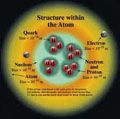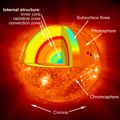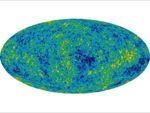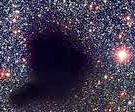For those who study the universe, this is the greatest age of discovery in history. Technical advances extend our view to the earliest galaxies,document the distribution of radiation from the Big Bang, locate remote exoplanets, and collide atomic particles to reveal the structure of mass and matter. These accomplishments represent the work of scientists and engineers in many fields, and because of this effort we are beginning to develop the best understanding of the universe we have ever had. Here are some basics.
Things to Know about the Cosmos

Cosmos: Black Holes
Paradoxical objects that underscore the mystery of the universe, black holes seem the ultimate destructive force, but may be essential to the stability of galaxies...

Cosmos: Dark Matter, Dark Energy
Most of the mass of the universe is invisible and undetectable and is known only by its effects....

Cosmos: Our Familiar Matter
The kind of matter made of atoms accounts for a tiny fraction of the mass of the universe...

Cosmos: Solar Systems
Stellar death explosions produce massive gas and dust clouds, and some of that detritus becomes solar systems ...

Cosmos: Star Cycles
Millions of years after the Big Bang, scattered areas of gas density gradually increased in mass, heat and pressure, until they ignited in spectacular bursts of nuclear fusion...

Cosmos: The Cosmic Microwave Background
One of the best indicators that the universe began with a bang is the radiation it left behind...

Cosmos: Voids in Space
Huge regions of apparent nothingness throughout the universe are full of surprises....


